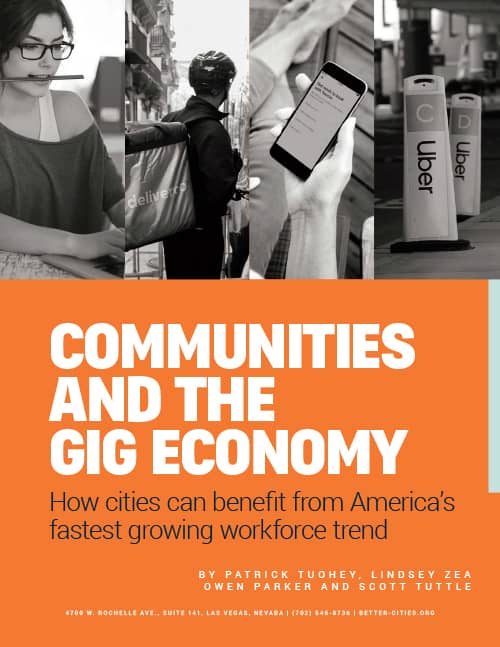
Local and state policies play a significant role in the growth — or underperformance — of America’s fastest-growing workforce trend, according to a new report from Better Cities Project.
The gig economy is big and growing — even if there is not yet an agreed-upon definition of the term. According to the report’s authors, this offers cities the prospect of added tax revenue and economic resilience. But often, legacy policies hold back gig workers.
Given the organic growth in gig work and its function as a safety net for millions of workers impacted by the pandemic, it’s reasonable to expect gig-work growth will continue and even speed up; cities with a permissive regulatory structure may be more insulated from economic chaos.
Key areas for city leaders to focus on include:
The gap between regulation and technology can hold citizens back and cost cities tax revenue
Regulation often lags behind technological innovation and, in the worst circumstances, can threaten to snuff it out. City leaders should ensure their policies provide people the opportunity to choose between different models of work — including models that may provide flexibility and opportunity but maybe not the stability and benefits of traditional employment. Having choices can encourage individual innovation for workers and for municipal economies.
Some cities leverage the gig economy better than others — and policy decisions are key
The rankings shown in this report have a lot of inputs — state policy and local economic conditions, to name but two. It’s important to ask: Is your city’s position the result of demand for gig work? Or have policies discouraged flexible work options for some even if they were well-intended?
Gig work is neither a fad nor something policymakers should reject in pursuit of undefined “good jobs.” Any workforce trend that has been embraced by millions of workers across the country deserves thoughtful, enabling policy from local leaders. And any city, armed with the recommendations in this report, has the tools to help its gig economy thrive.










Beyond the spectacle, Kansas City prepares for World Cup reality